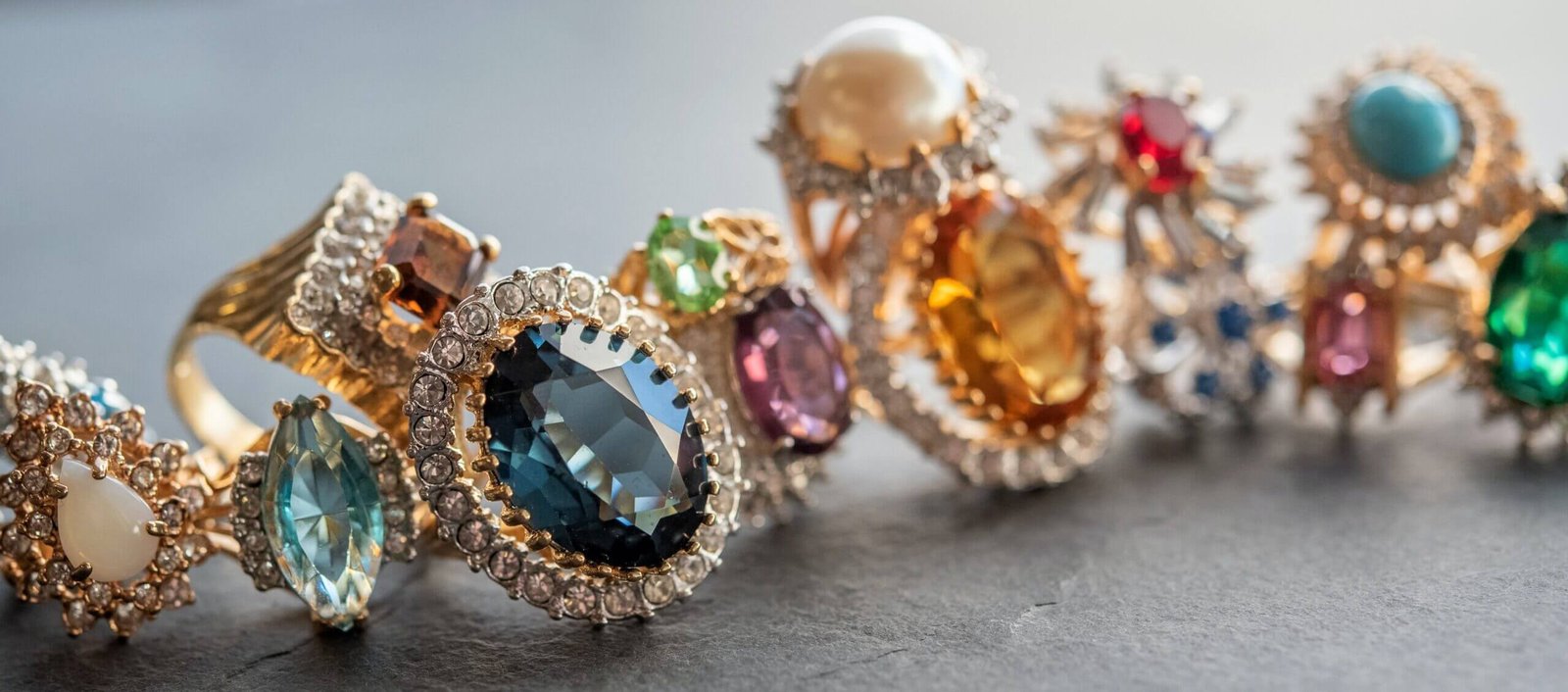What Is The Biblical Stone Of Destiny?
What Is The Biblical Stone Of Destiny? You’ve always been fascinated by Biblical history and symbolism, haven’t you? Your interest might have piqued while reading about the Stone of Destiny, a significant artifact deeply rooted in Biblical accounts. This article explores the meaning behind this mysterious object, its place within Biblical scripture, and the intrigue surrounding its mythic powers. Imagine delving into a journey that transports you back to ancient times, uncovering a fascinating tale wrapped in layers of reverence and mystery.

Origins of the Biblical Stone of Destiny
You might be wondering, what precisely is the biblical Stone of Destiny? Well, the Stone of Destiny, also known as Jacob’s Pillow, is an artifact of significant religious and historical importance. Its roots trace back to ancient biblical times, making it an object of intrigue and fascination over the centuries.
Definition of the Biblical Stone of Destiny
In simple terms, the Stone of Destiny is a block of sandstone that holds great importance in the biblical context. Historically, it was used in the coronation ceremonies of Scottish, and later, English monarchs. The Stone of Destiny carries a sense of mystique, as it’s oddly intertwined with multiple legends, biblical references, and historical accounts.
Biblical references to the Stone of Destiny
The Stone of Destiny is widely referenced in the Bible, particularly in the Old Testament. Its origins are traditionally linked to the biblical patriarch Jacob, who it is said, used the stone as a pillow when he dreamt of a ladder reaching to heaven.
Historical context of the Stone of Destiny
Historically, the Stone of Destiny has been associated with the monarchy due to its use during coronation ceremonies. It’s also seen as a symbol of power and legitimacy in the political sphere, giving it a context that extends beyond biblical theology. Over the years, its existence and authenticity have sparked much intrigue and debate.
Symbolism of the Stone of Destiny
The Stone of Destiny holds deep symbolism that spreads across different spheres of social life. Let’s delve into the spiritual, political, and cultural symbolisms to understand the Stone’s significance better.
Spiritual symbolism
Spiritually, the Stone of Destiny is regarded as a symbol of God’s promises and covenants in the Bible. Its association with patriarch Jacob is said to embody the divine covenant between God and the nation of Israel.
Political symbolism
Politically, the Stone of Destiny symbolizes the right to rule. Its use in the coronation process has made it a sign of authority and legitimacy, transmitting power from one monarch to another. This symbolism is largely influenced by its historical significance in the realm of kings and monarchs.
Cultural symbolism
Culturally, the Stone of Destiny represents the proud heritage of certain regions, mainly Scotland and Ireland. It’s intertwined with numerous cultural tales and folklore that thread together a rich tapestry of history and mythology.
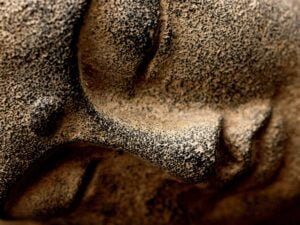
The Stone of Destiny in the Old Testament
The Old Testament provides an intriguing backdrop for the Stone of Destiny. Let’s take a quick tour of its biblical occurrences in this section of scriptures.
Jacob’s encounter with the Stone of Destiny
Jacob, one of the biblical patriarchs, has a notable encounter with the Stone of Destiny. According to the account, Jacob uses the stone as a pillow and, while sleeping, dreams of a ladder reaching to heaven with angels ascending and descending. This dream marked a covenant between God and Jacob, making the stone symbolic of divine promise.
The Stone of Destiny in the Ark of Covenant
There’s a theory that the Stone of Destiny was kept in the Ark of the Covenant, a gold-plated wooden chest described in the Book of Exodus. This theory further reinforces the spiritual significance of the stone among believers.
King David and the Stone of Destiny
King David, a central figure in the Old Testament, is said to have been anointed by the Stone of Destiny. The Stone’s use in royal ceremonies rooted its political symbolism, affirming its significance in sovereignty and leadership.
The Stone of Destiny in the New Testament
The New Testament also offers its fair share of references and analogies to the Stone of Destiny, mainly from a theological standpoint.
Christ as the metaphorical ‘Stone of Destiny’
In the New Testament, Christ is often referred to as the cornerstone, which some interpret as a metaphorical nod to the Stone of Destiny. This metaphor highlights the significance of Christ in the establishment and unification of the Church.
The Stone of Destiny in Revelations
The Stone of Destiny surfaces again in the Book of Revelations wherein a proverbial ‘White Stone’ is mentioned, symbolizing a new, spiritual identity bestowed upon believers by Christ. It signifies the renewal and redemption offered through Christ.
Apostle Peter and the Stone of Destiny
Apostle Peter is also associated with the Stone of Destiny. Christ proclaims Peter as the ‘rock’ upon which He would build His Church, which many believe is an analogy playing off the Stone of Destiny.
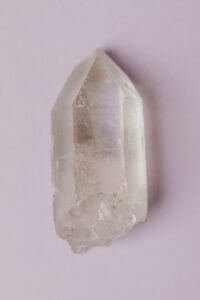
Legends and Myths Surrounding the Stone of Destiny
Over time, many legends and myths have grown around the Stone of Destiny, weaving it into folklore and making it a figure of mystery.
Celtic and Gaelic folklore
In Celtic and Gaelic folklore, the Stone of Destiny, known as Lia Fáil, is said to be a magical stone brought to Ireland by mythical invaders known as the Tuatha Dé Danann. The stone is believed to cry out upon the touch of the rightful king, further developing its political symbolism.
Scottish historical legends
Scottish legends accord high importance to the Stone of Destiny, claiming it was transported to Scotland and used in the coronation of its kings. The intertwining of historical facts and storytelling has created a rich backdrop for this mystical artifact.
Modern myths and conspiracy theories
Modern myths and conspiracy theories have found their place around the Stone of Destiny too. These include speculations about its real identity, questions regarding its location, and theories about its supposed ‘powers.’
The Stone of Destiny and British Monarchy
The Stone of Destiny has had a significant involvement with the British Monarchy, holding a key role in the coronation ceremonies and bearing witness to historical upheavals.
Coronation ceremony and the Stone of Destiny
Since the 13th century, the Stone of Destiny has been used in the coronation ceremonies of English, and later, British monarchs. The monarch is crowned while seated upon a throne with the Stone of Destiny fitted underneath, symbolizing the monarch’s authority and legitimacy.
The theft and return of the Stone of Destiny
In 1950, a group of Scottish students stole the Stone of Destiny from Westminster Abbey, triggering a massive hunt. It was eventually found and returned, but the incident reignited discussions about the stone’s rightful location.
Current location of the Stone of Destiny
Today, the Stone of Destiny is kept in Edinburgh Castle along with other crown jewels of Scotland. However, it is returned to Westminster Abbey in London for use in British coronation ceremonies.
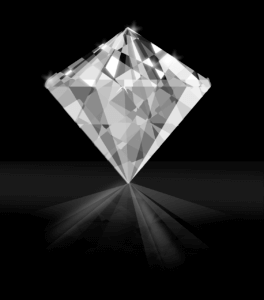
Controversies Surrounding the Stone of Destiny
Like any artifact steeped in history and legend, the Stone of Destiny is not without its share of controversies.
Authenticity of the current Stone of Destiny
There have been ongoing debates about the authenticity of the current Stone of Destiny. Some theorists believe that the real stone was never returned after its theft in 1950, while others question whether the stone in Westminster Abbey was ever the original artifact.
Ownership disputes over the Stone of Destiny
Ownership of the Stone of Destiny has also been a topic of dispute. Arguments over whether it rightfully belongs to Scotland, England, or Ireland have fueled political tensions over the years.
Religious controversies related to the Stone of Destiny
From a religious perspective, controversies have arisen over the Stone of Destiny’s significance. While some Christians view it as an important biblical relic, others deem the emphasis on it as idolatrous, arguing that the focus should be on God’s teachings, not physical artifacts.
The Stone of Destiny in Pop Culture
The Stone of Destiny isn’t just confined to religious and historical texts—it has also found its way into pop culture through films, literature, and art.
Depictions of the Stone of Destiny in films and literature
The Stone of Destiny has inspired numerous works of fiction and non-fiction alike, appearing in films and novels as a mystical artifact, pivotal plot point, or symbol of power. Movies such as the ‘Stone of Destiny’ (2008) have notably captured its dramatic history and legends on the big screen.
The Stone of Destiny in art
In the art world, the Stone of Destiny has been depicted in various forms, such as paintings, sculptures, and tapestries. Its artistic representations often reflect its cultural and historical significance.
Popular misconceptions about the Stone of Destiny
Like any legend, the Stone of Destiny has its share of misconceptions. Some people believe it possesses magical properties or hidden powers, while others attach uncorroborated myths to it. While these misconceptions bring a sense of intrigue, they often divert attention from the stone’s actual historical and religious significance.
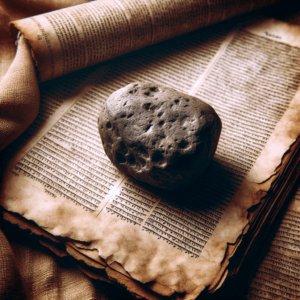
Significance of the Stone of Destiny Today
The Stone of Destiny still holds relevance in current times, influencing modern Christianity, contemporary politics, and cultural scenarios.
The Stone of Destiny and modern Christianity
In modern Christianity, the Stone of Destiny continues to be regarded as a source of spiritual inspiration and theological reflection.
The Stone of Destiny in contemporary politics
Politically, the Stone of Destiny remains a symbol of power and legitimacy. It continues to play a crucial role in the coronation of British monarchs, reflecting sovereignty and continuity.
Cultural significance of the Stone of Destiny in Scotland and Ireland
In the cultural landscapes of Scotland and Ireland, the Stone of Destiny is part of shared heritage and national identity. It’s a symbol of their ancient histories, rooted in folklore and legend.
The Stone of Destiny: Realities and Speculations
While research has shed light on some aspects of the Stone of Destiny, it remains shrouded in many unanswered questions.
Scholarly findings about the Stone of Destiny
Scholarly examinations have probed into different aspects of the Stone of Destiny, ranging from its biblical references to its geological composition. However, given its mystical nature, definitive answers are often elusive.
Theological interpretations of the Stone of Destiny
Theologically, interpretations of the Stone of Destiny differ among scholars and religious sects. While some view it as an emblem of covenant and promise, others see it as a metaphor with symbolic value.
Future implications of the Stone of Destiny
The future implications of the Stone of Destiny are largely speculative. As long as it remains a symbol of power and authority, it’ll continue to hold significance in politics and monarchy. Similarly, its religious symbolism is unlikely to wane among believers. As legend, lore, and reality intertwine, the Stone of Destiny will continue to retain its aura of mystery and allure.
